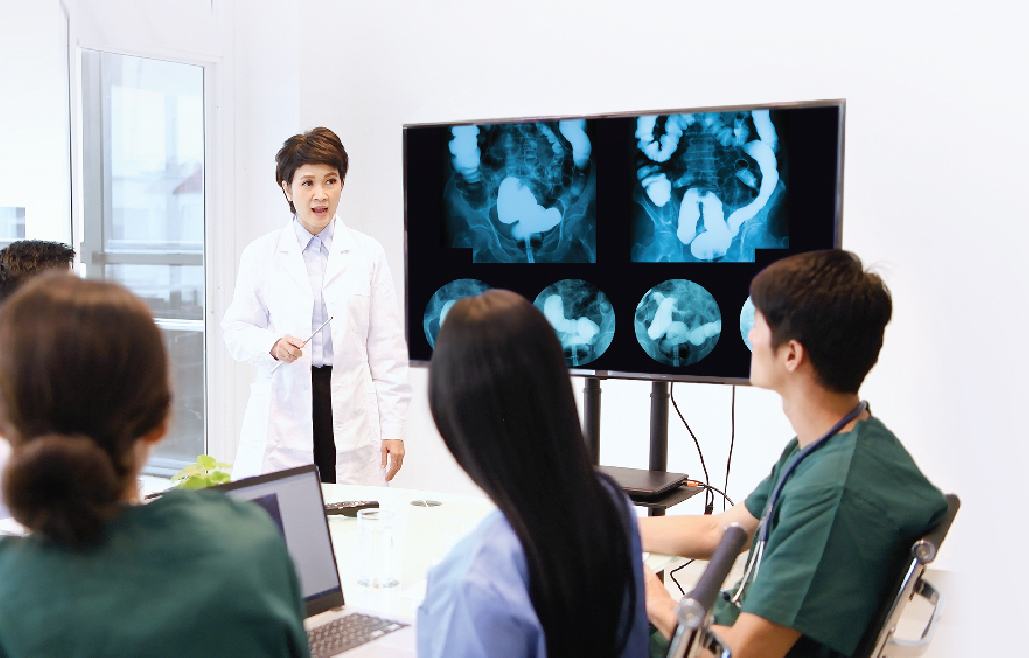Chemotherapeutics: Managing Cancer Cells Effectively
Center : Cancer Center
 จัดการเซลล์มะเร็ง Eng-01.jpg)
Modern cancer treatment involves various methods, depending on the type and severity of the disease. Chemotherapeutics, or chemotherapy, is one of the most widely used drug treatments for cancer today. Doctors may use chemotherapy as the primary treatment or as an adjunct to other treatments to increase the chances of complete remission compared to localized treatments alone.
Contents
- How Chemotherapeutics (Chemotherapy) Work
- Goals of Cancer Treatment with Chemotherapeutics
- Forms of Chemotherapeutics
- Duration of Chemotherapy
- Preparing for Chemotherapy
- Self-Care During Chemotherapeutic Treatment
- Post-Chemotherapeutic Treatment Care at Home
- Side Effects of Chemotherapeutics (Chemotherapy)
- Online Consultation
How Chemotherapeutics (Chemotherapy) Work
Chemotherapeutics, commonly known as chemotherapy, are drugs that target and destroy cancer cells. The primary target of these drugs is rapidly dividing cancer cells. Chemotherapeutics inhibit cell division in various ways, preventing cancer cells from continuing to divide, ultimately causing their death.
Goals of Cancer Treatment with Chemotherapeutics
Doctors may use chemotherapeutics for different purposes: treatment, control, or palliative care. In some cases, a single drug may be used, but often, two drugs or a combination of chemotherapeutics with other treatments are administered. For example, chemotherapy may be given before and after surgery or alongside radiation therapy. The type and number of drugs a patient receives depend on the type of cancer cells, the stage and severity of the disease, and whether the cancer has spread to other parts of the body. The goal is to enhance the effectiveness of the treatment compared to using localized treatments alone.

Forms of Chemotherapeutics
Chemotherapeutics can be administered to patients in several ways, including:
- Oral Chemotherapy: This method simplifies drug administration and reduces hospital stays for chemotherapy treatment.
- Intravenous Chemotherapy: Drugs are delivered through an intravenous drip, often combined with other fluids.
Duration of Chemotherapy
The duration of chemotherapy depends on the type of cancer, its stage, and how the patient responds to the drugs. Treatment typically consists of multiple cycles, lasting 1-5 days each, spaced 2-4 weeks apart. On average, patients may undergo 6-8 cycles, as determined by the treatment plan. Adhering to scheduled appointments is crucial for effective treatment outcomes.
Preparing for Chemotherapy
- Doctors will assess the patient's readiness and conduct blood tests to evaluate blood cell counts and liver and kidney function. Some chemotherapeutics require dosage adjustments based on organ function.
- Patients should inform their doctor of any chronic conditions, such as heart disease, diabetes, or high blood pressure, and any regular medications they are taking.
- A balanced diet rich in protein (e.g., meat, egg whites, milk) is recommended.
- Patients should get adequate rest, including an additional 1-2 hours of sleep during the day.
- Avoid alcohol, smoking, and herbal supplements.
Self-Care During Chemotherapeutic Treatment
- Monitor the injection site for pain, swelling, redness, or signs of leakage and inform a nurse immediately if any issues arise.
- Drink plenty of water to help flush out residual chemicals through urine.
- Report any nausea or vomiting to a nurse promptly.
Post-Chemotherapeutic Treatment Care at Hom
- Follow the doctor's instructions for about a month to minimize potential complications.
- Contact the doctor if experiencing severe symptoms, such as high fever, excessive nausea or vomiting, severe diarrhea, bleeding, or unusual bruising before the next scheduled appointment.
- Regularly attend follow-up appointments if no abnormal symptoms are present.
Side Effects of Chemotherapeutics (Chemotherapy)
Chemotherapy may affect normal cells that divide rapidly, causing side effects that vary by individual, drug regimen, dosage, and patient condition prior to treatment. Common side effects include hair loss, mouth sores, loss of appetite, diarrhea, fatigue, anemia, and low blood cell counts. These side effects are typically temporary and improve as the drugs leave the system. If side effects worsen, patients should seek medical attention immediately.
Advancements in cancer treatment with chemotherapeutics have led to the development of new, more effective drugs with fewer side effects. Additionally, medications that prevent and reduce side effects are now available, enhancing the overall effectiveness and tolerability of chemotherapeutic treatments.
Free Online Consultation
Article of Cancer Center


 จัดการเซลล์มะเร็ง Eng-02.jpg)